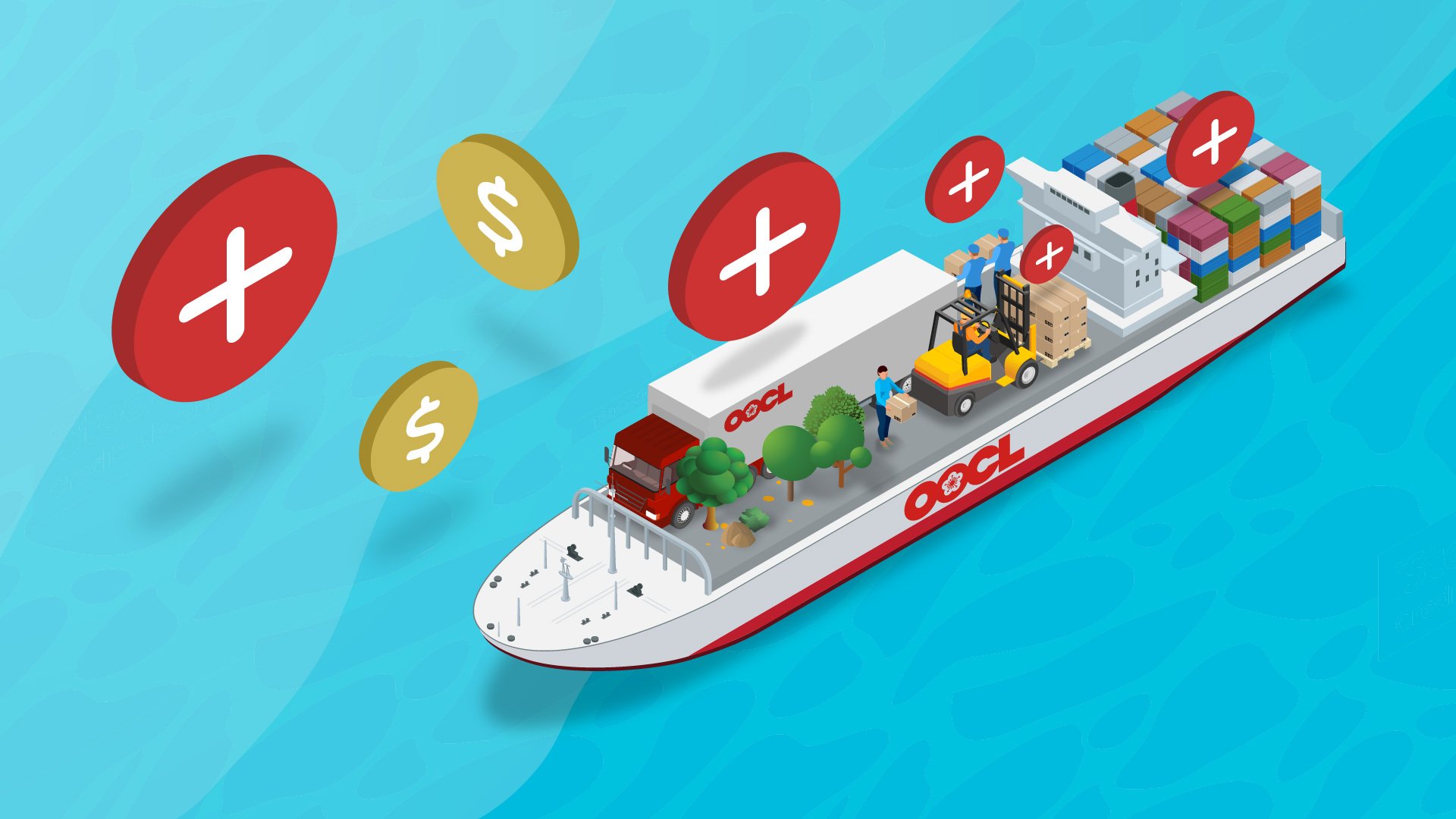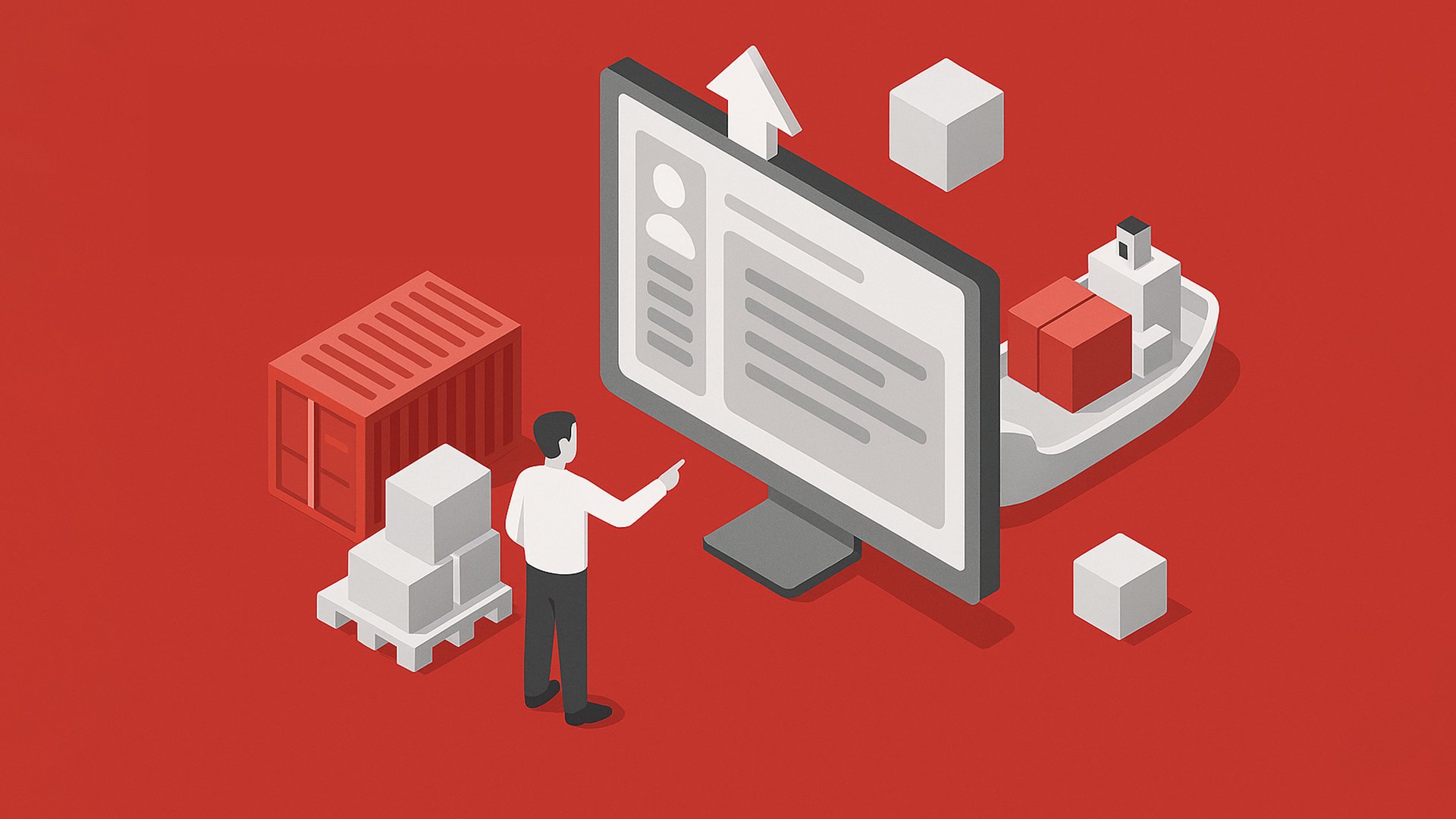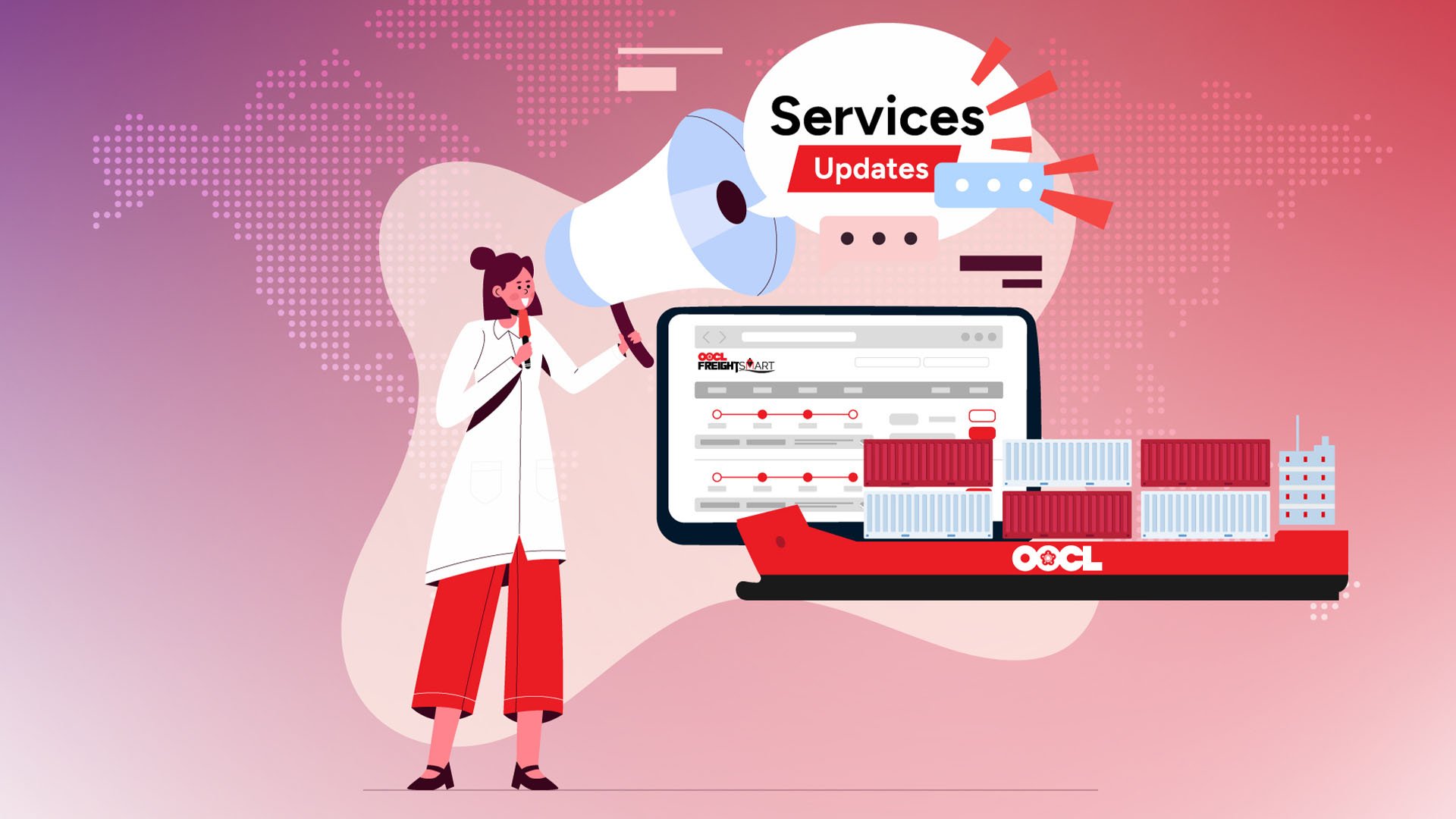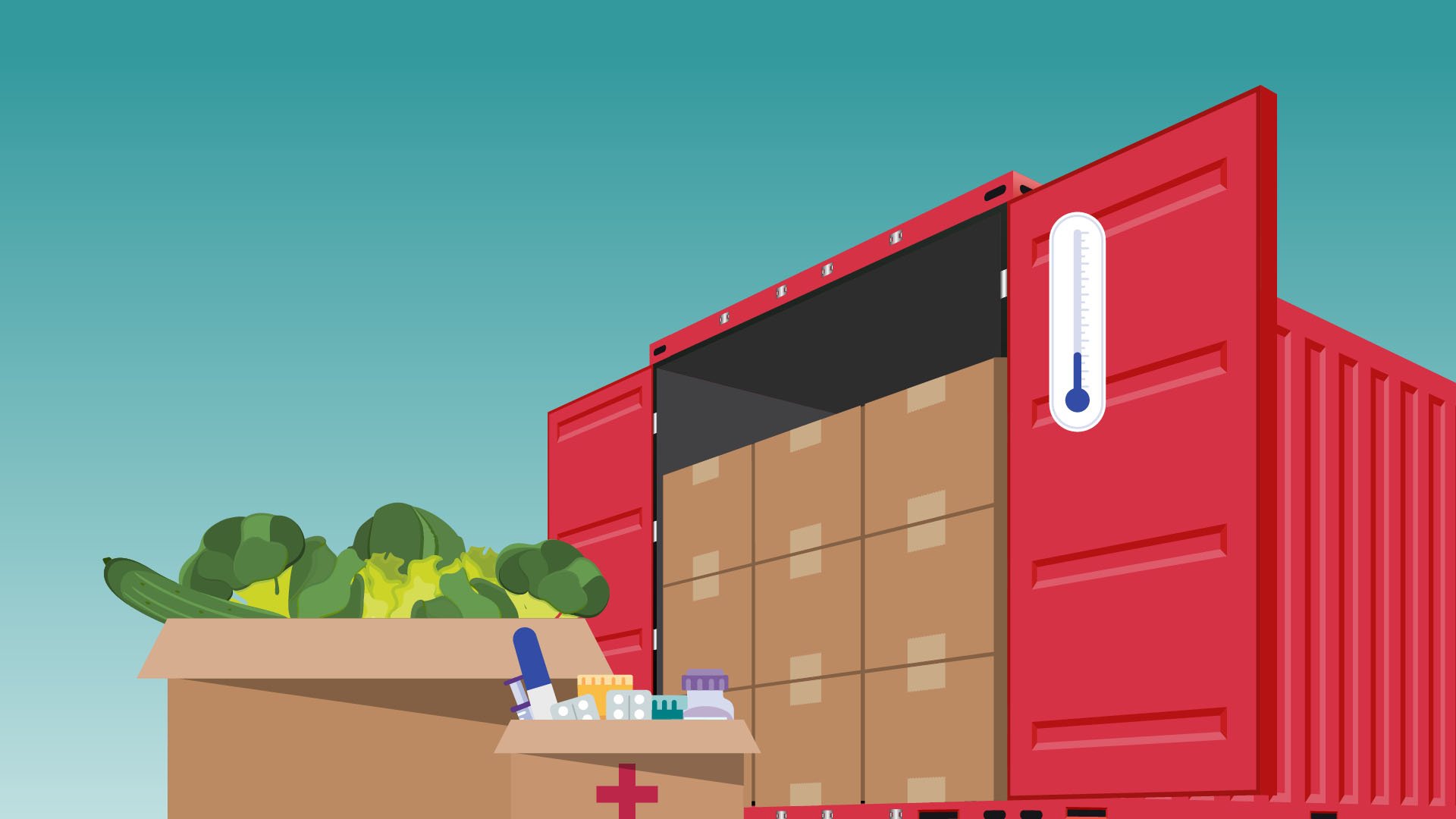Cold chain logistics refers to the transportation, storage and preservation of perishable or heat-sensitive goods, such as food, medical supplies, and certain cosmetics, at controlled temperatures. With the rise of online grocery shopping, cold chain logistics has become increasingly important. However, there are several challenges that come with managing the cold chain, including proper handling of goods, correct packaging, temperature control, and the consequent need for more space. In this article, we will discuss these challenges and offer some tips for importing and exporting perishable goods – so you can chill out and stop worrying.
The accelerating trend towards digital grocery shopping
Consumers' ever-growing demand for convenience, together with increasingly busy lifestyles, have driven a huge expansion in online grocery sales over the past few years. In 2019, only 19% of US consumers had ever ordered groceries online. Within a year, this figure had jumped to 79%, with online spending surging from 1.2 billion USD to 7.2 billion USD1. Many consumers – particularly in younger age groups2 – have found this practice convenient and are making it a regular habit.
This trend has created new challenges and opportunities for retailers – including traditional retail chains, which have invested heavily in new online shopping channels.3 However, the cold chain for groceries is complex, and retaining these new customers will require retailers to raise their game to satisfy consumer expectations, providing excellent customer experiences while keeping ordering and logistics processes as simple and efficient as possible.
Correct handling of goods
Improper handling of perishable goods can lead to high levels of wastage, including food waste. An estimate from the UN Food and Agriculture Organization (FAO) suggests that as much as 30% of food produced for human consumption globally is lost between field and table4. There are numerous reasons for losses at every stage of the supply chain. Within the logistics sector, losses typically occur when goods are not handled appropriately, leading to spoilage and/or a deterioration in quality. To avoid this, it is important to have proper SOPs in place, and to partner with trustworthy shipping companies with expertise in cold chain logistics.
- Correct packaging is essential to maintain the temperature of the goods and protect them from damage and pests during transport. This may require the use of Styrofoam, dry ice, or other temperature-controlled packaging materials.
- Temperature control is the most critical element of cold chain logistics. Perishable goods must be kept at a consistent temperature to prevent spoilage and maintain quality – and frozen goods must not be allowed to thaw during transit. In addition to economic losses, improper temperature control of food also contributes to bacterial growth which can lead to food poisoning5, while pharmaceutical products not kept at the correct temperature may lose their efficacy. Therefore, the use of temperature-controlled vehicles, refrigeration units, shipping containers, and other temperature-controlled storage solutions is required to maintain the “cold chain” throughout the supply chain.
Space requirement
Cold chain logistics often require more space than traditional logistics, as perishable goods need to be stored at controlled temperatures. Whether in refrigerated (reefer) containers or temperature-controlled warehouses, some of the available space is taken up by chilling or refrigeration equipment, leaving less room for goods. It may be necessary to maintain different temperatures in different spaces depending on the goods stored, requiring additional equipment. Furthermore, goods must be packed with adequate space for airflow around them. These requirements can be a challenge for SMEs in particular, as they may not have the space or resources to accommodate the storage needs. To overcome this challenge, SMEs can consider partnering with third-party providers or using shared storage facilities.
Importance of the Last Mile
The last mile of the delivery process is critical for cold chain logistics, as perishable goods must be delivered to the customer's door in a timely and efficient manner. Shippers need to partner with reliable delivery companies that have experience in handling perishable goods and can ensure that the goods are delivered on time and in good condition.
Special considerations when importing and exporting
When shipping perishable goods across international boundaries, it is important to have all the necessary documentation in place, including customs declarations and invoices. Customs procedures – which often include physical inspections of the goods – can be a bottleneck holding up the delivery of time-sensitive cold chain products. To minimize delays, it is necessary to have a clear understanding of the regulations and requirements for importing and exporting perishable goods, including the rules for packaging and labelling, and to be fully prepared to demonstrate compliance.
Streamlining the cold chain shipping process with technology
To overcome the challenges of keeping perishables unspoiled during shipment, businesses need to partner with reliable shipping companies and delivery companies, have proper storage and handling processes in place, and have a clear understanding of the regulations and requirements for importing and exporting perishable goods. Fortunately, technological advances are giving shippers and carriers new tools to better control the shipping process and reduce spoilage.6 Smart sensors and cloud computing allow for continuous real-time monitoring of temperature readings, even on reefer containers at sea, for greater assurance, leading to a sustainable and effective cold chain.
A new way to access OOCL Reefer Service
To ensure the optimal performance of our reefers even under extreme conditions, each reefer unit at OOCL undergoes rigorous testing and extensive research. These containers maintain precise control over the atmospheric composition by continuously adding and removing gases, which enhances the refrigeration effect and extends the shelf life of products.
When it comes to booking refrigerated cargo, we offer the convenience of FreightSmart. With FreightSmart, we have simplified the online booking process, guaranteeing the availability of space and equipment. Whether your cargo is fresh or frozen, we provide specialized services to address the challenges of perishable logistics. As a comprehensive logistics provider, we also offer end-to-end digital visibility tools throughout the entire logistics journey, ensuring that you can have peace of mind knowing that your cargo is in safe hands with us.
1 https://www.sciencedirect.com/science/article/pii/S0736585322000727
2 https://pubmed.ncbi.nlm.nih.gov/36297112/
3 https://journals.sagepub.com/doi/full/10.1177/14707853211055047
4 https://www.fao.org/3/bt300e/bt300e.pdf
5 https://academic.oup.com/bioscience/article/65/8/758/240222
6 https://www.verizon.com/business/en-au/resources/articles/s/how-cold-chain-monitoring-can-help-reduce-food-waste/








